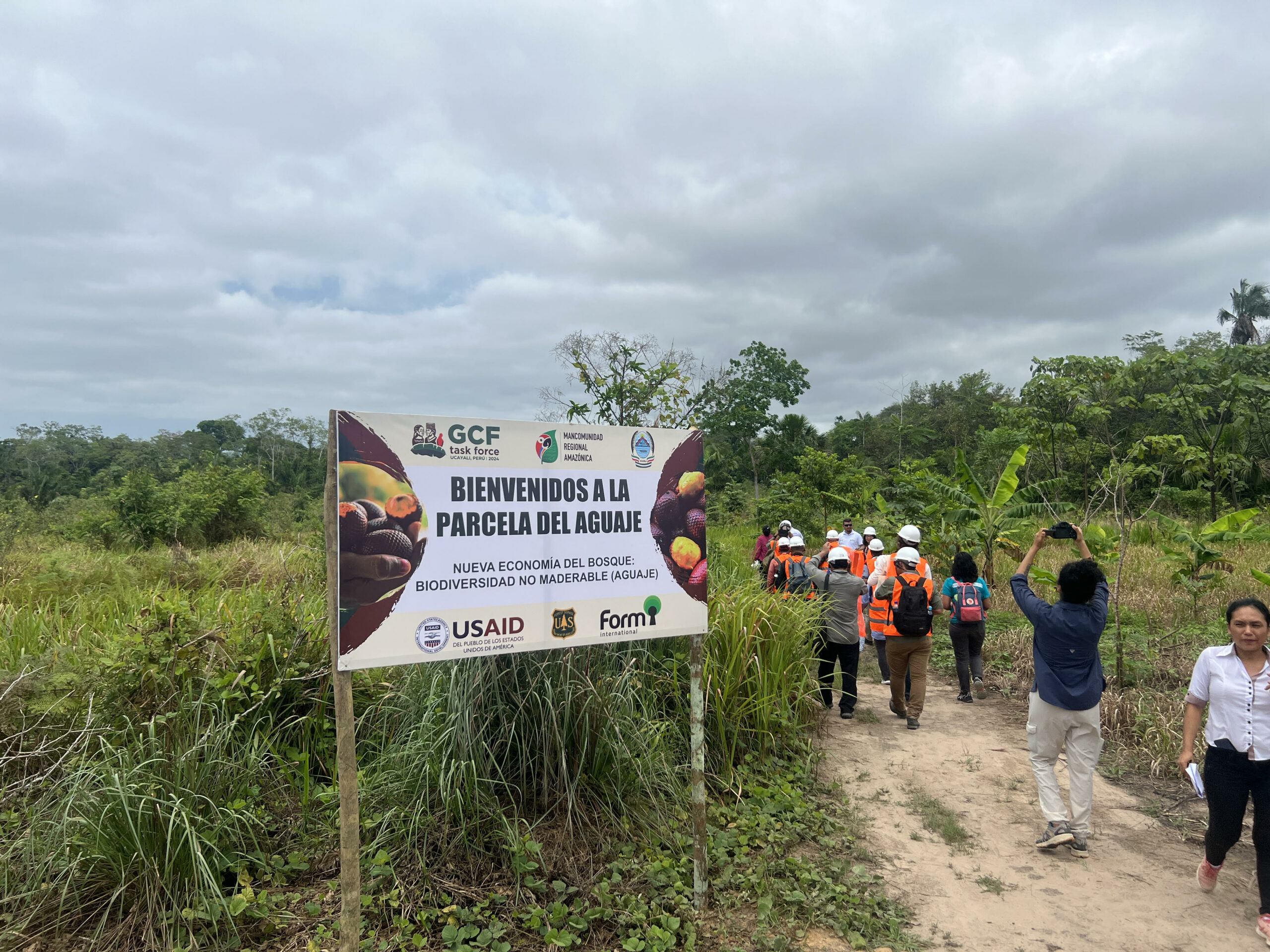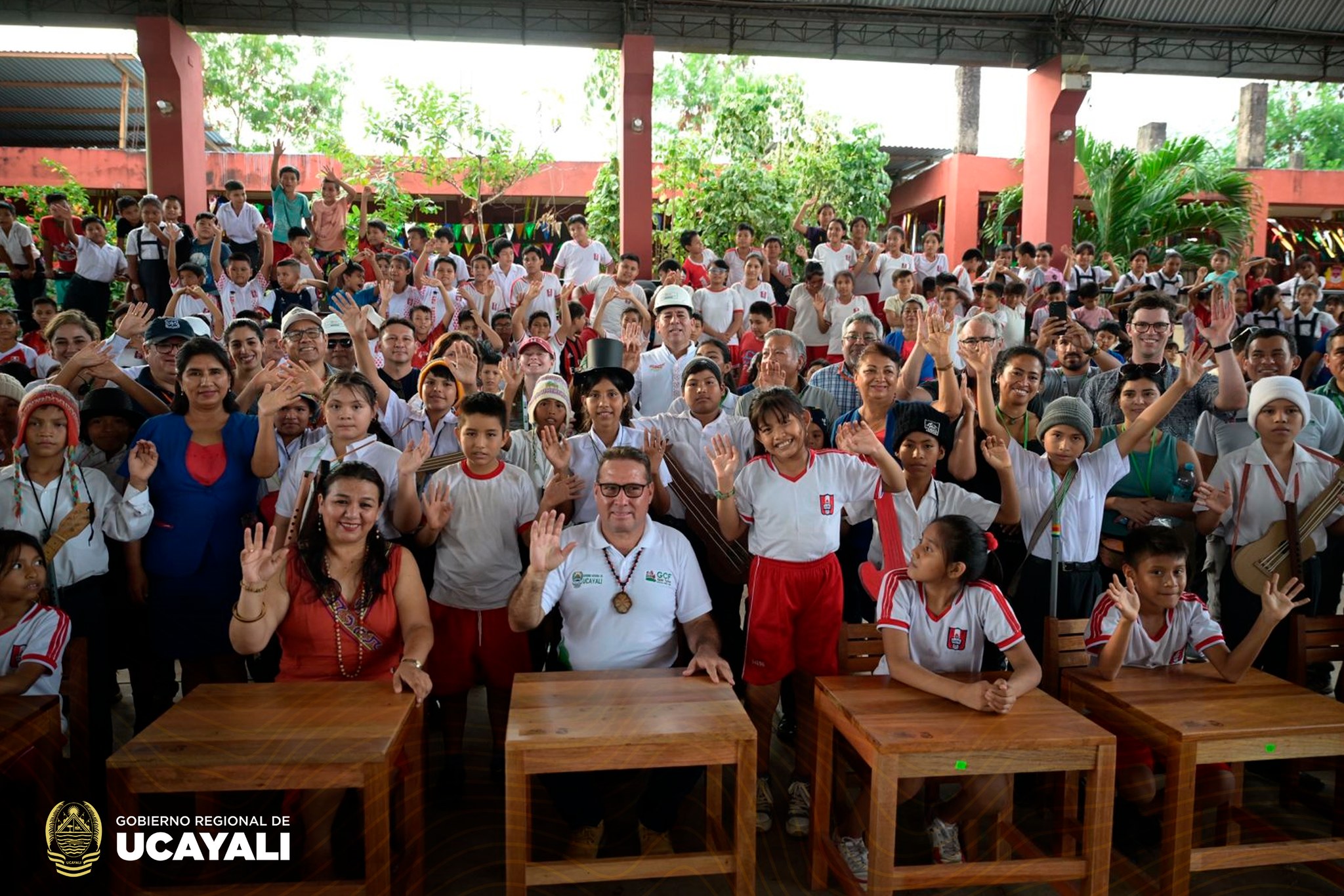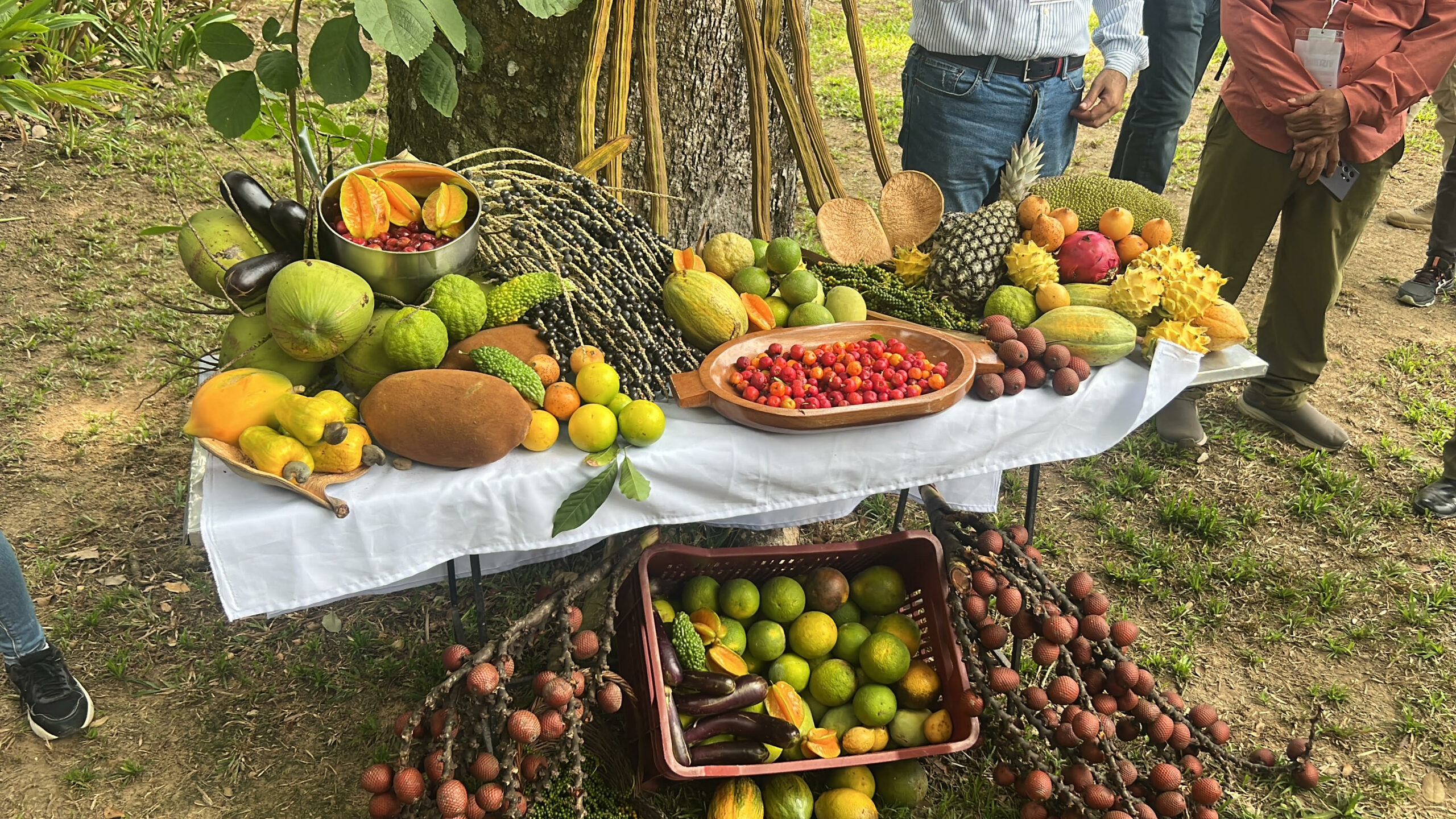During the 3rd day of the Governors’ Climate and Forests Task Force 14th Annual Meeting, participants dug deep into the realities on the ground through practical visits to seven different field experiences. Each of these experiences was designed by the communities, funding agencies, and partner organizations responsible for developing sustainable supply chains and building a new forest economy for Ucayali. The routes included:
1. Entrepreneurship Route: Indigenous Youth and Local Communities
This route highlights indigenous youth entrepreneurship and community-led projects. Participants will visit agro-tourism sites, an ecological hotel, aquaculture facilities, and a camu camu processing plant. Learn how local communities are using traditional knowledge to create sustainable business models and preserve their culture and forests.
2. Transformation Route: Sustainable Palm
Explore how the palm industry is being transformed into a sustainable model through the work of COCEPU, a local palm growers’ cooperative. This route showcases circular economy practices, including biodigesters, compost plants, and agroforestry systems that are breaking away from traditional monocultures and addressing deforestation challenges.
3. Cooperation Route: Cocoa and Forests
Visit agroforestry systems that integrate cocoa production with forest conservation. Participants will learn about the role of cooperatives in sustainable cocoa farming and see first-hand how local farmers, especially women, are transforming previously deforested areas into productive, sustainable lands.
4. Route of the New Forest Economy: Fruits of Biodiversity
This visit will highlight the management of native species like Aguaje and Ungurahui by local communities. Participants will see how sustainable harvesting techniques are helping conserve biodiversity while also generating economic value through high-added-value products derived from Amazonian fruits.

5. Value-Added Generation Route: Wood
Indigenous communities in Ucayali are pioneers in certified timber production. This route will showcase the entire timber value chain, from forest management to finished wood products, demonstrating how certified wood can meet market demands while promoting sustainability and community prosperity.

6. Restoration Route: Landscape Recovery and Ecosystem Services
Witness the restoration of degraded landscapes into thriving ecosystems. Participants will visit a 500-hectare area that has been transformed through reforestation, enhancing ecosystem services like water regulation and biodiversity recovery. The visit also includes insights into sustainable aquaculture and livestock practices.
7. Certification Route: Certified Palm (RSPO)
Focused on RSPO-certified sustainable palm production, this route will demonstrate best practices in palm cultivation and the value of certification in meeting environmental and social safeguards. Participants will visit production facilities and learn about efforts to minimize deforestation and promote agroforestry systems.
Find more information on our webpage.

